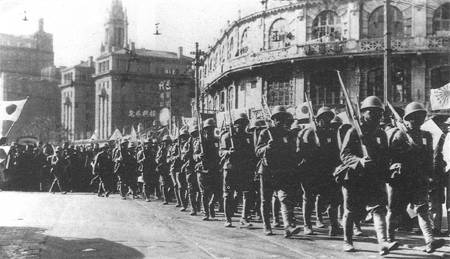The defining battles that shape anti-Japanese war history
- By Liu Qiang
 0 Comment(s)
0 Comment(s) Print
Print E-mail China.org.cn, May 29, 2015
E-mail China.org.cn, May 29, 2015
For the better part of the seventy years after the end of World War II and the victory of Chinese people's anti-Japanese war, China's contribution in WWII has been ignored for the main historical argument.
In his comment piece The World's Wartime Debt to China published on New York Times on October 17, 2013, Rana Mitter, professor of the history and politics of modern China at Oxford University, wrote: "China's resistance to Japan is one of the great untold stories of World War II. Though China was the first Allied power to fight the Axis, it has received far less credit for its role in the Pacific theater than the United States, Britain or even the Soviet Union, which only joined the war in Asia in August 1945. The Chinese contribution was pushed aside soon after the conflict, as an inconvenient story in the neat ideological narrative of the Cold War."
Seventy years after the war, China has become the world's second largest economy, and there is a lot of rethinking of China's role in WWII as a sideshow held by many western historians. As the year 2015 marks the 70th anniversary of the victory of China's anti-Japanese war, it is a good time for people around the world to learn some of the so many untold stories during the war on China battlefield.
Battle of Shanghai
The battle was the first major engagement between China and Japan during the war and was one of the largest and bloodiest battles. In his book Shanghai 1937: Stalingrad on the Yangtze, Peter Harmsen describes the awful months-long battle as China's battle of Stalingrad. At its height, the battle involved about a million Chinese and Japanese soldiers. Shanghai was lost finally. Nearly 300,000 Chinese soldiers were killed or injured, over 5 times the Japanese figure. The battle escalated the skirmish of the Marco Polo Bridge Incident and the localized war in North China into a full-scale war.







Go to Forum >>0 Comment(s)